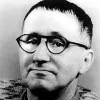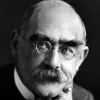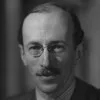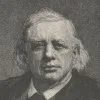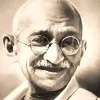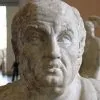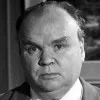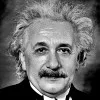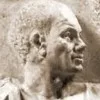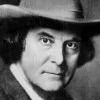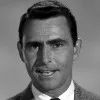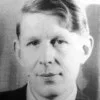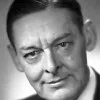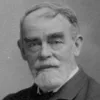Quotations about:
fear
Note not all quotations have been tagged, so Search may find additional quotes on this topic.
Somebody was screaming and I had to check it wasn’t me. It could have been me. I certainly wanted to scream, but I remembered that right then and there Leslie and I were the only coppers on the scene and the public doesn’t like it when the police start screaming; it contributes to an impression of things not being conducive to public calm.
If ever there’s a tomorrow where we’re not together, there is something you must remember. You’re braver than you believe, and stronger than you seem, and smarter than you think.
A. A. Milne (1882-1956) English poet and playwright [Alan Alexander Milne]
(Misattributed)
(Source)
Christopher Robin to Pooh Bear. The quotation is broadly attributed to Milne and Winnie the Pooh, but is actually from the 1997 Disney video Pooh's Grand Adventure: The Search for Christopher Robin, written by Carter Crocker and Karl Geurs, based on the characters created by Milne.
The desire for safety stands against every great and noble enterprise.
[Nisi impunitatis cupido retinuisset, magnis semper conatibus adversa.]
The only limit to our realization of tomorrow will be our doubts of today.
Franklin Delano Roosevelt (1882-1945) American lawyer, politician, statesman, US President (1933-1945)
Speech (Undelivered) for Jefferson Day (13 Apr 1945)
(Source)
Approach the easy as though it were difficult, and the difficult as though it were easy; the first, lest overconfidence make you careless, and the second, lest faint-heartedness make you afraid.
[Lo fácil se ha de emprender como dificultoso, y lo dificultoso como fácil. Allí porque la confianza no descuide, aquí porque la desconfianza no desmaye.]
Baltasar Gracián y Morales (1601-1658) Spanish Jesuit priest, writer, philosopher
The Art of Worldly Wisdom [Oráculo Manual y Arte de Prudencia], § 204 (1647) [tr. Fischer (1937)]
(Source)
(Source (Spanish)). Alternate translations:What is easie ought to be set about, as if it were difficult; and what is difficult as if it were easie. The one for fear of slackening through too much confidence; and the other for fear of losing courage through too much apprehensiveness.
[Flesher ed. (1685)]Attempt easy tasks as if they were difficult, and difficult as if they were easy. In the one case that confidence may not fall asleep, in the other that it may not be dismayed.
[tr. Jacobs (1892)]Undertake the easy as though it were difficult, and the difficult as though it were easy, so as not to grow overconfident or discouraged.
[tr. Maurer (1992)]
Perhaps we need, for worldly success, virtues which make us loved and vices which make us feared.
[Peut-être, pour les succès du monde, faut-il des vertus qui fassent aimer, et des défauts qui fassent craindre.]
Joseph Joubert (1754-1824) French moralist, philosopher, essayist, poet
Pensées [Thoughts], ch. 9 “De la Sagesse, de la Vertu, etc. [On Wisdom and Virtue],” ¶ 26 (1850 ed.) [tr. Collins (1928), ch. 8]
(Source)
(Source (French)). Alternate translations:Perhaps, for worldly success, we ought to have virtues that make us beloved, and faults that make us feared.
[tr. Lyttelton (1899), ch. 8, ¶ 21]
The world is like a ride in an amusement park, and when you choose to go on it you think it’s real because that’s how powerful our minds are. The ride goes up and down, around and around, it has thrills and chills, and it’s very brightly colored, and it’s very loud, and it’s fun for a while. Many people have been on the ride a long time, and they begin to wonder, “Hey, is this real, or is this just a ride?” And other people have remembered, and they come back to us and say, “Hey, don’t worry; don’t be afraid, ever, because this is just a ride.” And we … kill those people. “Shut him up! I’ve got a lot invested in this ride, shut him up! Look at my furrows of worry, look at my big bank account, and my family. This has to be real.” It’s just a ride. But we always kill the good guys who try and tell us that, you ever notice that? And let the demons run amok. … But it doesn’t matter, because it’s just a ride. And we can change it any time we want. It’s only a choice. No effort, no work, no job, no savings of money. Just a simple choice, right now, between fear and love. The eyes of fear want you to put bigger locks on your doors, buy guns, close yourself off. The eyes of love instead see all of us as one.
People with real power never fear of losing it. People with control think of little else.
Joss Whedon (b. 1964) American screenwriter, author, producer [Joseph Hill Whedon]
“Mom, He’s Doing It Again…”, Whedonesque.com (10 Nov 2007)
(Source)
Talking of the danger of being mortified by rejection, when making approaches to the acquaintance of the great, I observed, “I am, however, generally for trying, ‘Nothing venture, nothing have.'” JOHNSON. “Very true, sir; but I have always been more afraid of failing, than hopeful of success.”
Courage is more exhilarating than fear and in the long run it is easier. We do not have to become heroes overnight. Just a step at a time, meeting each thing that comes up, seeing it is not as dreadful as it appeared, discovering we have the strength to stare it down.
A strategist should think in terms of paralyzing, not of killing. Even on the lower plane of warfare, a man killed is merely one man less, whereas a man unnerved is a highly infectious carrier of fear, capable of spreading an epidemic of panic. … The sword drops from a paralyzed hand.
Have you ever been approached by a grim-looking man, carrying a naked sword with a blade about ten miles long in his hand, in the middle of the night, beneath the stars on the shores of Lake Michigan? If you have, seek professional help. If you have not, then believe you me, it can scare the bejeezus out of you.
What goals would you be setting for yourself if you knew you could not fail?
Robert H. Schuller (1926-2015) American televangelist, pastor, motivational speaker, author
You Can Become the Person You Want To Be, ch. 2 (1973)
Earliest version of this aphorism. Often attributed (without citation) to Eleanor Roosevelt. See here for more information.Variants:
- "What would you attempt if you knew you could not fail?"
- "If you knew you cold not fail, what would you try?"
- "What great things would you attempt if you knew you could not fail?"
Be without fear. This is impossible, but let the small fears drive your rewriting and set aside the large ones until they behave — then use them, maybe even write them. Too much fear and all you’ll get is silence.
Alison Louise "A. L." Kennedy (b. 1965) Scottish writer and comedian
In “Ten Rules for Writing Fiction,” The Guardian (20 Feb 2010)
(Source)
“Why do men feel threatened by women?” I asked a male friend of mine. (I love that wonderful rhetorical device, “a male friend of mine.” It’s often used by female journalists when they want to say something particularly bitchy but don’t want to be held responsible for it themselves. It also lets people know that you do have male friends, that you aren’t one of those fire-breathing mythical monsters, The Radical Feminists, who walk around with little pairs of scissors and kick men in the shins if they open doors for you. “A male friend of mine” also gives — let us admit it — a certain weight to the opinions expressed.) So this male friend of mine, who does by the way exist, conveniently entered into the following dialogue. “I mean,” I said, “men are bigger, most of the time, they can run faster, strangle better, and they have on the average a lot more money and power.” “They’re afraid women will laugh at them,” he said. “Undercut their world view.” Then I asked some women students in a quickie poetry seminar I was giving, “Why do women feel threatened by men?” “They’re afraid of being killed,” they said.
Margaret Atwood (b. 1939) Canadian writer, literary critic, environmental activist
“Writing the Male Character,” Hagey Lecture, U. of Waterloo (9 Feb 1982)
(Source)
Published in a revised version as "Writing the Male Character," Second Words: Selected Critical Prose, 1960-1982 (1983).
Usually paraphrased, "Men are afraid that women will laugh at them. Women are afraid that men will kill them."
Richard looked at the woman in leather. “Is there anything, really, to be scared of?”
“Only the night on the bridge,” she said.
“The kind in armor?”
“The kind that comes when the day is over.”
Your spirit, youth, and valour give me heart, not to mention necessity, which makes even the timid brave.
[Animus, aetas, virtus vostra me hortantur, praeterea necessitudo, que etiam timidos fortis facit.]
Sallust (c. 86-35 BC) Roman historian and politician [Gaius Sallustius Crispus]
Bellum Catilinae [The War of Catiline; The Conspiracy of Catiline], ch. 58, sent. 19 [tr. Rolfe (1931)]
(Source)
Catiline, addressing his troops. Usually shortened to "Necessity makes even the timid brave" [Necessitas etiam timidos fortes facit.]. Original Latin.
Alt. trans.:
- "From your youthful vigor and undaunted courage I expect every advantage. Even the difficulties of our situation inspire me with confidence; for difficulties have often produced prodigies of valor." [tr. Murphy (1807)]
- "Your spirit, your age, your virtue encourage me; and our necessity, too, which even inspires cowards with bravery." [tr. Rose (1831), ch. 61]
- "Your spirit, your age, your valour encourage me, the necessity moreover which makes even the timid brave." [Source (1841)]
- "Your spirit, your age, your valor, give me confidence; to say nothing of necessity, which makes even cowards brave." [tr. Watson (1867)]
- "Your resolution, your age, and your courage, and above all the inevitable nature of the encounter, which often makes even the timid brave, exhort me to this." [tr. Pollard (1882)]
There’s power in the night. There’s terror in the darkness. Despite all our accumulated history, learning, and experience, we remember. We remember times when we were too small to reach the light switch on the wall, and when the darkness itself was enough to make us cry out in fear. Get a good ways out from civilization — say, miles and miles away on a lightless lake — and the darkness is there, waiting. Twilight means more than just time to call the children in from playing outside. Fading light means more than just the end of another day. Night is when terrible things emerge from their sleep and seek soft flesh and hot blood. Night is when unseen beings with no regard for what our people have built and no place in what we have deemed the natural order look in at our world from outside, and think dark and alien thoughts. And sometimes, just sometimes, they do things.
Therefore, two bad habits must be forbidden, both the fear of the future and the memory of by-gone trouble; the latter no longer belongs to me, the former, not yet.
It is said that our anxiety does not empty tomorrow of its sorrows, but only empties today of its strength.
Charles Spurgeon (1834-1892) British Baptist preacher, author [Charles Haddon (C.H.) Spurgeon]
The Salt-Cellars (1889)
(Source)
To do what you are afraid to do is to guide your life by fear. How much better not to be afraid to do what you believe in doing!
Be true to your own act, and congratulate yourself if you have done something strange and extravagant, and broken the monotony of a decorous age. It was a high counsel that I once heard given to a young person, “Always do what you are afraid to do.”
Ralph Waldo Emerson (1803-1882) American essayist, lecturer, poet
“Heroism,” Essays: First Series (1841)
See also Schmich.
Do one thing every day that scares you.
Mary Schmich (b. 1953) American newspaper columnist
“Advice, Like Youth, Probably Just Wasted on the Young,” Chicago Tribune (1997-07-01)
(Source)
Often attributed to Eleanor Roosevelt, but no reference found in her works or contemporaneous sources (though see this Eleanor quote). Also attributed to Kurt Vonnegut and to Baz Luhrmann (who used the words in a song but credited them to Schmich).Related predecessors can be found in other quotations (Emerson, Jane Addams, Mark Toby), linked back to this one below. For more discussion about this quotation, see Do One Thing Every Day That Scares You – Quote Investigator®.
Repentanse should be the effekt ov love — not fear.
[Repentance should be the effect of love — not fear.]
Josh Billings (1818-1885) American humorist, aphorist [pseud. of Henry Wheeler Shaw]
Everybody’s Friend, Or; Josh Billing’s Encyclopedia and Proverbial Philosophy of Wit and Humor, ch. 155 “Affurisms: Ink Lings” (1874)
(Source)
The real persuaders are our appetites, our fears, and above all our vanity. The skillful propagandist stirs and coaches these internal persuaders.
Eric Hoffer (1902-1983) American writer, philosopher, longshoreman
The Passionate State of Mind, Aphorism 218 (1955)
(Source)
Vows made in Storms are forgot in Calms.
Thomas Fuller (1654-1734) English physician, preacher, aphorist, writer
Gnomologia: Adages and Proverbs (compiler), # 5408 (1732)
(Source)
We make promises to the extent that we hope, and keep them to the extent that we fear.
[Nous promettons selon nos espérances, et nous tenons selon nos craintes.]
François VI, duc de La Rochefoucauld (1613-1680) French epigrammatist, memoirist, noble
Réflexions ou sentences et maximes morales [Reflections; or Sentences and Moral Maxims], ¶38 (1665-1678) [tr. Kronenberger (1959)]
(Source)
Present from the 1st edition in 1665.
(Source (French)). Alternate translations:Our Promises are always made with a reflection on our Hopes, and perform'd according to our fears.
[tr. Davies (1669), ¶16]We promise in proportion to our Hopes,
and we keep in proportion to our Fears
[tr. Stanhope (1694), ¶39]We promise in proportion to our Hopes, and we keep our Word in proportion to our Fears.
[tr. Stanhope (1706), ¶39]We promise according to our hopes, and perform according to our fears.
[pub. Donaldson (1783), ¶357; [ed. Lepoittevin-Lacroix (1797); ed. Gowens (1851), ¶39]We promise according to our hopes; we perform according to our fears.
[ed. Carville (1835), ¶463; tr. Bund/Friswell (1871)]Promises are measured by hope; performances by fear.
[tr. Heard (1917)]Our promises are measured by our hopes; our performances by our fears.
[tr. Stevens (1939)]Our promises are made in hope, and kept in fear.
[tr. FitzGibbon (1957)]Our promises are made in proportion to our hopes, but kept in proportion to our fears.
[tr. Tancock (1959)]We make promises according to our hopes, and keep them according to our fears.
[tr. Whichello (2016)]
Men often hate each other because they fear each other; they fear each other because they don’t know each other; they don’t know each other because they can not communicate; they can not communicate because they are separated.
Martin Luther King, Jr. (1929-1968) American clergyman, civil rights leader, social activist, preacher
Stride Toward Freedom, ch. 2 “Montgomery Before the Protest” (1958)
(Source)
Respectfulness, without the rules of propriety, becomes laborious bustle; carefulness, without the rules of propriety, becomes timidity; boldness, without the rules of propriety, becomes insubordination; straightforwardness, without the rules of propriety, becomes rudeness.
[恭而無禮則勞、愼而無禮則葸、勇而無禮則亂、直而無禮則絞。]
Confucius (c. 551- c. 479 BC) Chinese philosopher, sage, politician [孔夫子 (Kǒng Fūzǐ, K'ung Fu-tzu, K'ung Fu Tse), 孔子 (Kǒngzǐ, Chungni), 孔丘 (Kǒng Qiū, K'ung Ch'iu)]
The Analects [論語, 论语, Lúnyǔ], Book 8, verse 2 (8.2.1) (6th C. BC – AD 3rd C.) [tr. Legge (1861)]
(Source)
(Source (Chinese)). Brooks (below) believes this text was interpolated into Book 8 at the time that Book 14 was collected. Alternate translations:Without the Proprieties, we have these results: for deferential demeanour, a worried one; for calm attentiveness, awkward bashfulness; for manly conduct, disorderliness; for straightforwardness, perversity.
[tr. Jennings (1895)]Earnestness without judgment becomes pedantry; caution without judgment becomes timidity; courage without judgment leads to crime; uprightness without judgment makes men tyrannical.
[tr. Ku Hung-Ming (1898)]Courtesy uncontrolled by the laws of good taste becomes labored effort, caution uncontrolled becomes timidity, boldness uncontrolled becomes recklessness, and frankness uncontrolled become effrontery.
[tr. Soothill (1910)]Respect without rules of procedure becomes laborious fuss: scrupulosity without rules of procedure, timidity (fear to show the thought); boldness without such rules breeds confusion; directness without rules of procedure becomes rude.
[tr. Pound (1933)]Courtesy not bounded by the prescriptions of ritual becomes tiresome. Caution not bounded by the prescriptions of ritual becomes timidity, daring becomes turbulence, inflexibility becomes harshness.
[tr. Waley (1938)]Not to follow the rites in being modest is annoyance. Not to follow them in exercising care is timidity. Not to follow them in acts of bravery is confusion. Not to follow them in our uprightness is brusqueness.
[tr. Ware (1950)]Unless a man has the spirit of the rites, in being respectful he will wear himself out, in being careful he will become timid, in having courage he will become unruly, and in being forthright he will become intolerant.
[tr. Lau (1979)]If one is courteous but does without ritual, then one dissipates one's energies; if one is cautious but does without ritual, then one becomes timid; if one is bold but does without ritual, then one becomes reckless; if one is forthright but does without ritual, then one becomes rude.
[tr. Dawson (1993)]Without ritual, courtesy is tiresome; without ritual, prudence is timid; without ritual, bravery is quarrelsome; without ritual, frankness is hurtful.
[tr. Leys (1997)]Respectfulness without the rituals becomes laboriousness; discretion without the rituals becomes apprehensiveness; courage without the rituals becomes rebelliousness; straightforwardness without the rituals becomes impetuosity.
[tr. Huang (1997)]One would be tired if one is humble but not polite; One would be week if one is cautious but not polite; One would be foolhardy if one is brave but not polite; One would be caustic if one is frank but not polite.
[tr. Cai/Yu (1998), #190]Deference unmediated by observing ritual propriety [li] is lethargy; caution unmediated by observing ritual propriety is timidity; boldness unmediated by observing ritual propriety is rowdiness; candor unmediated by observing ritual propriety is rudeness.
[tr. Ames/Rosemont (1998)]If he is respectful without propriety, he becomes wearisome. If he is careful without propriety, he becomes finicky. If he is brave without propriety, he becomes disruptive. If he is upright without propriety, he becomes censorious.
[tr. Brooks/Brooks (1998)]Reverence becomes tedium without Ritual, and caution becomes timidity. Without Ritual, courage becomes recklessness, and truth becomes intolerance.
[tr. Hinton (1998)]If you are respectful but lack ritual you will become exasperating; if you are careful but lack ritual you will become timid; if you are courageous but lack ritual you will become unruly; and if you are upright but lack ritual you will become inflexible.
[tr. Slingerland (2003)]Courtesy without ritual becomes labored; caution without ritual becomes timidity; daring without ritual becomes riotousness; directness without ritual becomes obtrusiveness.
[tr. Watson (2007)]Unless a man acts according to the spirit of the rites, in being respectful, he will tire himself out; in being cautious, he will become timid; in being brave, he will become unruly; in being forthright, he will become derisive.
[tr. Chin (2014)]
Since I do not foresee that atomic energy will prove to be a boon within the near future, I have to say that, for the present, it is a menace. Perhaps it is well that it should be. It may intimidate the human race into bringing order to its international affairs, which, without the pressure of fear, undoubtedly would not happen.
Albert Einstein (1879-1955) German-American physicist
“Einstein on the Atomic Bomb,” Interview with Raymond Swing, Atlantic (Nov 1945)
(Source)
Doubt is to certainty as neurosis is to psychosis. The neurotic is in doubt and has fears about persons and things; the psychotic has convictions and makes claims about them. In short, the neurotic has problems, the psychotic has solutions.
Thomas Szasz (1920-2012) Hungarian-American psychiatrist, educator
“Mental Illness,” The Second Sin (1973)
(Source)
One ought to be both feared and loved, but as it is difficult for the two to go together it is much safer to be feared than loved, if one of the two has to be wanting. … And men have less scruple in offending one who makes himself loved than one who makes himself feared; for love is held by a chain of obligation, which men being selfish, is broken whenever it serves their purpose, but fear is maintained by a dread of punishment which never fails.
Niccolò Machiavelli (1469-1527) Italian politician, philosopher, political scientist
The Prince, ch. 17 (1513) [tr. Ricci (1903)]
(Source)
Alt. trans.: "Is it better to be loved than feared, or the reverse? The answer is that it is desirable to be both, but because it is difficult to join them together, it is much safer for a prince to be feared than loved, if he is to fail in one of the two. ... Men have less hesitation in injuring one who makes himself loved than one who makes himself feared, for love is held by a chain of duty which, since men are bad, they break at every chance for their own profit; but fear is held by a dread of punishment that never fails you." [tr. Gilbert (1958)]
Remembering that I’ll be dead soon is the most important tool I’ve ever encountered to help me make the big choices in life. Because almost everything — all external expectations, all pride, all fear of embarrassment or failure — these things just fall away in the face of death, leaving only what is truly important. Remembering that you are going to die is the best way I know to avoid the trap of thinking you have something to lose.
Steve Jobs (1955-2011) American computer inventor, entrepreneur
Commencement Address, Stanford University (2005)
(Source)
A Good life fears not Life nor Death.
Thomas Fuller (1654-1734) English physician, preacher, aphorist, writer
Gnomologia: Adages and Proverbs (compiler), # 157 (1732)
(Source)
Deserves death! I daresay he does. Many that live deserve death. And some die that deserve life. Can you give that to them? Then be not too eager to deal out death in the name of justice, fearing for your own safety. Even the wise cannot see all ends.
J.R.R. Tolkien (1892-1973) English writer, fabulist, philologist, academic [John Ronald Reuel Tolkien]
The Lord of the Rings, Vol. 2: The Two Towers, Book 4, ch. 1 “The Taming of Sméagol” (1954)
(Source)
Frodo recalling the words of Gandalf (approximately) in The Fellowship of the Ring.
Licinius, trust a seaman’s lore:
Steer not too boldly to the deep,
Nor, fearing storms, by treacherous shore
Too closely creep.
Who makes the golden mean his guide,
Shuns miser’s cabin, foul and dark,
Shuns gilded roofs, where pomp and pride
Are envy’s mark.
[Rectius vives, Licini, neque altum
semper urgendo neque, dum procellas
cautus horrescis, nimium premendo
litus iniquum.
Auream quisquis mediocritatem
diligit, tutus caret obsoleti
sordibus tecti, caret invidenda
sobrius aula.]Horace (65-8 BC) Roman poet, satirist, soldier, politician [Quintus Horatius Flaccus]
Odes [Carmina], Book 2, # 10, l. 1ff (2.10.1-8) (23 BC) [tr. Conington (1872)]
(Source)
To Licinius Varro Murena, who was later executed as a conspirator against Augustus.
(Source (Latin)). Alternate translations:The safest way of life, is neither
To tempt the Deeps, nor whilst foul weather
You fearfully avoid, too near
The shore to steer.
He that affects the Golden Mean,
Will neither want a house that's clean,
Nor swell unto the place of showres
His envy'd Towres.
[tr. Fanshaw; ed. Brome (1666)]Wise they, that with a cautious fear
Not always thro the Ocean Steer,
Nor, whilst they think the Winds will roar,
Do thrust too near the rocky Shore:
To those that choose the golden Mean:
The Waves are smooth, the Skies serene;
They want the baseness of the Poors retreat,
And envy'd Houses of the Great.
[tr. Creech (1684)]Receive, dear friend, the truths I teach,
So shalt thou live beyond the reach
Of adverse fortunes pow'r;
Not always tempt the distant deep,
Nor always timorously creep
Along the treach'rous shore.
He that holds fast the golden mean,
And lives contentedly between
The little and the great,
Feels not the wants that pinch the poor,
Nor plagues that haunt the rich man's door,
Imbitt'ring all his state.
[tr. Cowper (1782?)]O Licinius, you will lead a more correct course of life, by neither always pursuing the main ocean, nor, while you cautiously are in dread of storms, by pressing too much upon the hazardous shore. Whosoever loves the golden mean, is secure from the sordidness of an antiquated cell, and is too prudent to have a palace that might expose him to envy.
[tr. Smart/Buckley (1853)]If thou wouldst live secure and free,
Thou wilt not keep far out at sea,
Licinius, evermore;
Nor, fearful of the gales that sweep
The ocean wide, too closely creep
Along the treacherous shore.
The man, who with a soul serene
Doth cultivate the golden mean,
Escapes alike from all
The squalor of a sordid cot,
And from the jealousies begot
By wealth in lordly hall.
[tr. Martin (1864)]Licinius, wouldst thou steer life's wiser voyage,
Neither launch always into deep mid-waters,
Nor hug the shores, and, shrinking from the tempest,
Hazard the quicksand.
He who elects the golden mean of fortune,
Nor where dull squalor rots the time-worn hovel,
Nor where fierce envy storms the new-built palace,
Makes his safe dwelling.
[tr. Bulwer-Lytton (1870)]Neither always tempt the deep,
Nor, Licinius, always keep,
Fearing storms, the slippery beach:
Such the rule of life I teach.
Golden is the middle state;
Love the middle gifts of fate,
Not the sloven squalid cot,
Proud and envied palace not.
[tr. Gladstone (1894)]Better, Licinius, wilt thou live, by neither
Tempting the deep for ever, nor, while tempests
Cautiously shunning, by too closely hugging
Shores that are treach'rous.
He who the golden mean adopts, is ever
Free from the sorrows of a squalid dwelling; --
Free from the cares attending on the envied
Halls of the wealthy.
[tr. Phelps (1897)]Licinius, better wilt thou live by neither urging
Alway out to sea, nor, while on guard 'gainst storms
Thou shudderest, by pressing an evil shore
Too close.
Whoever courts a golden mean is safe
To escape the squalor of a mouldered roof.
And shrewd to escape a paJace that may
Be grudged to him.
[tr. Garnsey (1907)]Safer thou'lt sail life's voyage, if them steer
Neither right out to sea, nor yet, when rise
The threat'ning tempests, hug the shore too near,
Unwisely wise.
What man soe'er the golden mean doth choose,
Prudent will shun the hovel's foul decay;
But with like sense, a palace will refuse
And vain display.
[tr. Marshall (1908)]Better wilt thou live, Licinius, by neither always pressing out to sea nor too closely hugging the dangerous shore in cautious fear of storms. Whoso cherishes the golden mean, safely avoids the foulness of an ill-kept house and discreetly, too, avoids a hall exciting envy.
[tr. Bennett (Loeb) (1912)]Licinius, would you live aright,
Tempt not the high seas evermore,
Nor, fearing tempests, in your fright
Too closely hug the dangerous shore.
Who loves the golden mean is free
And safe from grime -- the grime a house
Harbours in eld; his modesty
Earns not the envy mansions rouse.
[tr. Mills (1924)]Sail not too far to be safe, O Licinius!
Neither too close to the shore should you steer.
Rashness is foolish, and how ignominious
Cowardly fear!
He who possesses neither palace nor hovel
(My little flat would be half way between)
Hasn't a house at which paupers must grovel
Yet it is clean.
[tr. Adams (1928)]Licinius, to live wisely shun
The deep sea; on the other hand,
Straining to dodge the storm don't run
Too close in to the jagged land.
All who love safety make their prize
The golden mean and hate extremes:
Mansions are envied for their size,
Slums pitied for their rotting beams.
[tr. Michie (1963)]Licinius, life makes better sense
Lived neither pushing farther and farther
To sea, nor always hugging the dangerous
Shore, shaking at the thought of storms.
Cherish a golden mean and stay
Exempt from a filthy hovel
And exempt from the envy
A mansion excites.
[tr. Raffel (1983)]You'll do better, Licinius, not to spend your life
Venturing too far out on the dangerous waters,
Or else, for fear of storms, staying too close in
To the dangerous rocky shoreline, That man does best
Who chooses the middle way, so he doesn't end up
Living under a roof that's going to ruin
Or in some gorgeous mansion everyone envies.
[tr. Ferry (1997)]Better will you live, O Licinius, not always urging yourself out upon the high seas, nor ever hugging the insidious shore in fear of storms. He who esteems the golden mean safely avoids the squalor of a wretched house and in sobriety, equally shuns the enviable palace.
[tr. Alexander (1999)]You’ll live more virtuously, my Murena,
by not setting out to sea, while you’re in dread
of the storm, or hugging fatal shores
too closely, either.
Whoever takes delight in the golden mean,
safely avoids the squalor of a shabby house,
and, soberly, avoids the regal palace
that incites envy.
[tr. Kline (2015)]
… [P]riests of the different religious sects, who dread the advance of science as witches do the approach of day-light; and scowl on the fatal harbinger announcing the subversion of the duperies on which they live.
Thomas Jefferson (1743-1826) American political philosopher, polymath, statesman, US President (1801-09)
Letter (1820-04-11) to José Corrêa da Serra
(Source)
On resistance, particularly from Presbyterians, to the founding of the University of Virginia.
The development from a religion of fear to moral religion is a great step in peoples’ lives. And yet, that primitive religions are based entirely on fear and the religions of civilized peoples purely on morality is a prejudice against which we must be on our guard. The truth is that all religions are a varying blend of both types, with this differentiation: that on the higher levels of social life the religion of morality predominates.
Albert Einstein (1879-1955) German-American physicist
“Religion and Science,” New York Times Magazine (9 Nov 1930)
(Source)
In old age the root of virtue is fatigue; in youth, fear.
Paul Eldridge (1888-1982) American educator, novelist, poet
Maxims for a Modern Man, #258 (1965)
(Source)
Never in History has the average American citizen found more need for a saving sense of humor. Beset by threats of destruction by atomic bombs, inflation, mounting taxes, overcrowded cities, witch hunters, propagandists, caterwauling commentators, and the incessant clamor of radio and television commercials, he must laugh occasionally to keep from blowing his top altogether. It’s far too easy to see only the shadows, and ignore the patches of sunlight that remain.
Bennett Cerf (1898-1971) American publisher, humorist
Laughter Incorporated, Foreword (1950)
(Source)
No condition so low but may have Hopes; none so high but may have Fears.
Thomas Fuller (1654-1734) English physician, preacher, aphorist, writer
Gnomologia: Adages and Proverbs (compiler), # 3555 (1732)
(Source)
On some positions, Cowardice asks the question, “Is it safe?” Expediency asks the question, “Is it is politic?” Vanity asks the question, “Is it is popular?” But Conscience asks the question, “Is it right?” There comes a time when one must take a position that is neither safe, nor politic, nor popular, but he must do it because Conscience tells him it is right.
Martin Luther King, Jr. (1929-1968) American clergyman, civil rights leader, social activist, preacher
Speech, Santa Rita, Calif., (14 Jan 1968)
Recording (at 10:22). King reused speech elements frequently. The same passage can be found in "Remaining Awake Through a Great Revolution", sermon at the National Cathedral, Washington, DC (31 Mar 1968).
We are all tattooed in our cradles with the beliefs of our tribe; the record may seem superficial, but it is indelible. You cannot educate a man wholly out of the superstitious fears which were early implanted in his imagination; no matter how utterly his reason may reject them, he will still feel as the famous woman did about ghosts, Je ne crois pas, mais je les crains, — “I don’t believe in them, but I am afraid of them, nevertheless.”
Men fear death as children fear to go in the dark; and as that natural fear in children is increased with tales, so is the other.
Francis Bacon (1561-1626) English philosopher, scientist, author, statesman
“Of Death,” Essays, No. 2 (1625)
(Source)
A Degree of Fear sharpeneth, the Excess of it stupifieth.
George Savile, Marquis of Halifax (1633-1695) English politician and essayist
“Fear,” Political, Moral and Miscellaneous Reflections (1750)
(Source)
Fear: A club used by priests, presidents, kings and policemen to keep the people from recovering stolen goods.
Elbert Hubbard (1856-1915) American writer, businessman, philosopher
The Roycroft Dictionary (1914)
(Source)
The glorious and the decent way of dying
Is for one’s country. Run, and death will seize
You no less surely. The young coward, flying,
Gets his quietus in the back and knees.
[Dulce et decorum est pro patria mori:
mors et fugacem persequitur virum
nec parcit inbellis iuventae
poplitibus timidoque tergo.]Horace (65-8 BC) Roman poet, satirist, soldier, politician [Quintus Horatius Flaccus]
Odes [Carmina], Book 3, # 2, l. 13ff (3.2.13-16) (23 BC) [tr. Michie (1963)]
(Source)
The first line is often translated as "It is sweet and fitting to die for one’s country." While dulce et decorum is often in the modern era (World War I and beyond) dismissed as murderous, meaningless brainwashing, the rest of the quatrain clarifies that death comes to the courageous and cowardly alike; that dishonorable flight does not ensure safety.
Though it's worth noting that Horace wrote of abandoning his shield and fleeing at the Battle of Philippi.
The ode as a whole is about training young Roman men in discipline and courage.
(Source (Latin)). Alternate translations:It is a sweet, and noble gain,
In Countreys quarrel to be slain.
Death the swift flying man pursues
With ready steps: Nor doth he use
To spare from unavoided wrack,
Youths supple hams, or fearful back.
[tr. Sir T. H.; ed. Brome (1666)]He nobly Bleeds, he bravely Dies,
That falls his Countries Sacrifice;
The flying Youth swift Fate o're takes
It strikes them thro the trembling backs,
And runs too fast for nimble Cowardice.
[tr. Creech (1684)]What joy, for fatherland to die!
Death's darts e'en flying feet o'ertake,
Nor spare a recreant chivalry,
A back that cowers, or loins that quake.
[tr. Conington (1872)]It is sweet and glorious to die for one’s country; death even pursues the man that flies from him; nor does he spare the trembling knees of effeminate youth, nor the coward back.
[tr. Smart/Buckley (1853)]For our dear native land to die
Is glorious and sweet;
And death the coward slaves that fly
Pursues with steps as fleet.
Nor spares the loins and backs of those
Unwarlike youths, who shun their foes.
[tr. Martin (1864)]Glorious and sweet it is to die for the dear native land;
Even him who runs away from Death, Death follows fast behind --
Death does not spare the recreant back,
And hamstrings limbs that flee.
[tr. Bulwer-Lytton (1870)]Sweet and glorious it is to die for our country. Death also pursues the runaway, and spares not the legs and trembling back of the unwarlike youth.
[tr. Elgood (1893)]'T is sweet for native land to die,
'T is noble: Death takes them that fly:
For coward back it has no ruth,
Nor spares the flight of dastard youth.
[tr. Gladstone (1894)]'Tis sweet and noble -- Death for one's country's sake --
Death overtakes the cowardly fugitive.
Nor spares his flying limbs, and timid
Back, as he runs from the foe dishonour'd.
[tr. Phelps (1897)]'Tis sweet and honourable to die for fatherland.
Death follows even the man who flees.
And of unwarlike youth
Spares not the loins and recreant back.
[tr. Garnsey (1907)]Good 'tis and fine, for fatherland to die!
Death tracks him too who shirks; nor will He fail
To smite the coward loins that quail,
The coward limbs that fly!
[tr. Marshall (1908)]'Tis sweet and glorious to die for fatherland. Yet Death o’ertakes not less the runaway, nor spares the limbs and coward backs of faint-hearted youths.
[tr. Bennett (Loeb) (1912)]To die for Homeland is a sweet
And gracious thing; on flying feet
Death presses hard, nor spares to smite
Poltroons' weak knees and backs affright.
[tr. Mills (1924)]How good, how noble to die for your country.
Death chases those who run from him,
And catches them, sand never spares a coward
Or a womanish boy.
[tr. Raffel (1983)]Sweet and proper it is to die for your country,
But Death would just as soon come after him
Who runs away; Death gets him by the backs
Of his fleeing knees and jumps him from behind.
[tr. Ferry (1997)]Sweet and noble is it to die for one’s country, yet Death pursues even the man who flees, nor does he spare the languid loins and cowardly backs of pusillanimous youth.
[tr. Alexander (1999)]It’s sweet and fitting to die for one’s country.
Yet death chases after the soldier who runs,
and it won’t spare the cowardly back
or the limbs, of peace-loving young men.
[tr. Kline (2015)]It is sweet and proper to die for your country:
Death, too, pursues the runaway man
And does not spare the knees of a peaceful youth
nor a fearful back.
[tr. Wikisource (2021)]
So the courageous person is the one who endures and fears — and likewise is confident about — the right things, for the right reason, in the right way, and at the right time.
[ὁ μὲν οὖν ἃ δεῖ καὶ οὗ ἕνεκα ὑπομένων καὶ φοβούμενος, καὶ ὡς δεῖ καὶ ὅτε, ὁμοίως δὲ καὶ θαρρῶν, ἀνδρεῖος.]
Aristotle (384-322 BC) Greek philosopher
Nicomachean Ethics [Ἠθικὰ Νικομάχεια], Book 3, ch. 7 (3.7.5) / 1115b.19 (c. 325 BC) [tr. Crisp (2000)]
(Source)
(Source (Greek)). Alternate translations:He is Brave then who withstands, and fears, and is bold, in respect of right objects, from a right motive, in right manner, and at right times.
[tr. Chase (1847), ch. 10]He then who with the right end in view faces what he ought, and fears it, and does so as he ought, and when he ought, and who in a similar manner faces with confidence that which ought to be so faced, -- he is brave.
[tr. Williams (1869), sec. 52]Thus he who faces and fears the right things for the right motive and in the right way and at the right time, and whose confidence is similarly right, is courageous.
[tr. Welldon (1892), ch. 10]He, then, that endures and fears what he ought from the right motive, and in the right manner, and at the right time, and similarly feels confidence, is courageous.
[tr. Peters (1893)]The man, then, who faces and who fears the right things and from the right motive, in the right way and from the right time, and who feels confidence under the corresponding conditions, is brave.
[tr. Ross (1908)]The courageous man then is he that endures or fears the right things and for the right purpose and in the right manner and at the right time, and who shows confidence in a similar way.
[tr. Rackham (1934)]So a person is courageous who endures and fears the things he should, in the way he should, when he should, and is similarly confident.
[tr. Reeve (1948)]The brave man is the man who faces or fears the right thing for the right purpose in the right manner at the right moment.
[tr. J. Thomson (1953)]So he who faces and fears those fearful things which he should, and for the right cause, and in the right manner, and at the right time, and who shows courage in a similar manner, is a brave man.
[tr. Apostle (1975)]The man who faces and fears (or similarly feels confident about) the right things for the right reason and in the right way and at the right time is courageous.
[tr. Thomson/Tredennick (1976)]Hence whoever stands firm against the right things and fears the right things, for the right end, at the right time, and is correspondingly confident, is the brave person.
[tr. Irwin/Fine (1995)]He, then, who endures and fears what he ought and for the sake of what he ought, and in the way he ought and when, and who is similarly confident as well, is courageous.
[tr. Bartlett/Collins (2011)]
What is the fear of the “gay agenda” that has so upset people? Do people think that if gay people are given a place at the table, they’ll be so convincing we’ll all end up blowing them? What is the issue? “You know, I’m straight, but you’ve made such a convincing argument …”
Mankind is naturally divided into three sorts; one third of them are animated at the first appearance of danger, and will press forward to meet and examine it; another third are alarmed by it, but will neither advance nor retreat, till they know the nature of it, but stand to meet it. The remaining third will run or fly upon the first thought of it.
HAMLET:Who would fardels bear,
To grunt and sweat under a weary life,
But that the dread of something after death,
The undiscovered country from whose bourn
No traveler returns, puzzles the will
And makes us rather bear those ills we have
Than fly to others that we know not of?William Shakespeare (1564-1616) English dramatist and poet
Hamlet, Act 3, sc. 1, l. 84ff (3.1.84-90) (c. 1600)
(Source)
"Fardels" = "burdens"
Take heed: Most Men will cheat without Scruple where they can do it without Fear.
Thomas Fuller (1654-1734) English physician, preacher, aphorist, writer
Introductio ad Prudentiam, Vol. 1, # 525 (1725)
(Source)
It’s not that I’m afraid to die. I just don’t want to be there when it happens.
Woody Allen (b. 1935) American comedian, writer, director [b. Allan Steward Konigsberg]
“Death (A Play)”, Without Feathers (1975)
Better beans and bacon in peace than cakes and ale in fear.
Aesop (620?-560? BC) Legendary Greek storyteller
Fables [Aesopica], “The Town Mouse and the Country Mouse” (6th C BC) [tr. Jacobs (1894)]
(Source)
Alternate translations:Compare to Proverbs 17:1 "Better is a dry morsel with quiet than a house full of feasting with strife."
- "The Difference betwixt a Court and a Country Life. The Delights, Innocence, and Security of the One, Compar'd with the Anxiety, the Lewdness, and the Hazards of the Other." [tr. L'Estrange (1692)]
- "Give me my barley-bread in peace and security before the daintiest feast where Fear and Care are in waiting." [tr. James (1848)]
- "A crust eaten in peace is better than a banquet partaken in anxiety."
The day I’m afraid to sit down with people I do not know because five years from now someone will say five of those people were Communists and therefore you are a Communist — that will be a bad day.
I want to be able to sit down with anyone who may have a new idea and not be afraid of contamination by association. In a democracy you must be able to meet with people and argue your point of view — people whom you have not screened beforehand. That must be part of the freedom of people in the United States.Eleanor Roosevelt (1884-1962) First Lady of the US (1933-45), politician, diplomat, activist
Speech (1950-04-02), Americans for Democratic Action
(Source)
On the rise of McCarthyism in the US.
NARRATOR: The tools of conquest do not necessarily come with bombs and explosions and fallout. There are weapons that are simply thoughts, attitudes, prejudices — to be found in the minds of men. For the record, prejudices can kill and suspicion can destroy, and a thoughtless, frightened search for a scapegoat has a fallout all its own — for the children and the children yet unborn. And the pity of it is that these things cannot be confined to … the Twilight Zone.
If there is a God who will damn his children forever, I would rather go to hell than to go to heaven and keep the society of such an infamous tyrant. I make my choice now. I despise that doctrine. It has covered the cheeks of this world with tears. It has polluted the hearts of children, and poisoned the imaginations of men.
Robert Green Ingersoll (1833-1899) American lawyer, agnostic, orator
“The Liberty of Man, Woman, and Child” (1877)
(Source)
CREATOR. A comedian whose audience is afraid to laugh.
H. L. Mencken (1880-1956) American writer and journalist [Henry Lewis Mencken]
A Book of Burlesques, “The Jazz Webster” (1924)
(Source)
The A Little Book in C Major, ch. 4, § 18 (1916), has an alternate definition. This was expanded in Burlesques to include the above, which then became the sole definition in Chrestomathy, ch. 30 "Sententiae" (1949).
Sometimes misattributed to Voltaire.
[Arguments] seem unable to influence the masses in the direction of what is noble and good. For the masses naturally obey fear, not shame, and abstain from shameful acts because of the punishments associated with them, not because they are disgraceful.
[τοὺς δὲ πολλοὺς ἀδυνατεῖν πρὸς καλοκαγαθίαν προτρέψασθαι: οὐ γὰρ πεφύκασιν αἰδοῖ πειθαρχεῖν ἀλλὰ φόβῳ, οὐδ᾽ ἀπέχεσθαι τῶν φαύλων διὰ τὸ αἰσχρὸν ἀλλὰ διὰ τὰς τιμωρίας]
Aristotle (384-322 BC) Greek philosopher
Nicomachean Ethics [Ἠθικὰ Νικομάχεια], Book 10, ch. 9 (10.9.3-4) / 1179b.10ff (c. 325 BC) [tr. Crisp (2000)]
(Source)
(Source (Greek)). Alternate translations:[Talking and writing] plainly are powerless to guide the mass of men to Virtue and goodness; because it is not their nature to be amenable to a sense of shame but only to fear; nor to abstain from what is low and mean because it is disgraceful to do it but because of the punishment attached to it
[tr. Chase (1847), ch. 8]But, for most men, mere precept is powerless to dispose them to noble conduct. For their nature is such, that they are not ruled by a proper sense of shame, but only by fear, and do not abstain from vice because of the disgrace which attaches to it, but because of the punishment which its practice involves.
[tr. Williams (1869)][Theories] are impotent to inspire the mass of men to chivalrous action; for it is not the nature of such men to obey honour but terror, nor to abstain from evil for fear of disgrace but for fear of punishment.
[tr. Welldon (1892)]Yet [theories] are powerless to turn the mass of men to goodness. For the generality of men are naturally apt to be swayed by fear rather than by reverence, and to refrain from evil rather because of the punishment that it brings than because of its own foulness.
[tr. Peters (1893)][Arguments] are not able to encourage the many to nobility and goodness. For these do not by nature obey the sense of shame, but only fear, and do not abstain from bad acts because of their baseness but through fear of punishment.
[tr. Ross (1908)]Yet [theories] are powerless to stimulate the mass of mankind to moral nobility. For it is the nature of the many to be amenable to fear but not to a sense of honor, and to abstain from evil not because of its baseness but because of the penalties it entails.
[tr. Rackham (1934)][Arguments are] unable to encourage ordinary people toward noble-goodness. For ordinary people naturally obey not shame but fear and abstain from base things not because of their shamefulness but because of the sanctions involved.
[tr. Reeve (1948)][Arguments] cannot exhort ordinary men to do good and noble deeds, for it is the nature of these men to obey not a sense of shame but fear, and to abstain from what is bad not because this is disgraceful but because of the penalties which they would receive.
[tr. Apostle (1975)][Discourses] are incapable of impelling the masses toward human perfection. For it is the nature of the many to be ruled by fear rather than by shame, and to refrain from evil not because of the disgrace but because of the punishments.
[tr. Thomson/Tredennick (1976)]But [arguments] seem unable to turn the many toward being fine and good. For the many naturally obey fear, not shame; they avoid what is base because of the penalties, not because it is disgraceful.
[tr. Irwin/Fine (1995)]
No one man can terrorize a whole nation, unless we are all his accomplices.
Edward R. Murrow (1908-1965) American journalist
See It Now (7 Mar 1954)
(Source)
Comment to the production team before the episode on Senator Joseph R McCarthy’s Communist witch hunt.
The dead do not suffer. And if they live again, their lives will surely be as good as ours. We have no fear. We are all children of the same mother, and the same fate awaits us all. We, too, have our religion, and it is this: Help for the living, Hope for the dead.
Robert Green Ingersoll (1833-1899) American lawyer, agnostic, orator
Speech (1882-01-08), “At a Child’s Grave,” Congressional Cemetery, Washington, D. C.
(Source)
Eulogy at the burial of Harry Miller.
While utterly discarding all creeds, and denying the truth of all religions, there is neither in my heart nor upon my lips a sneer for the hopeful, loving and tender souls who believe that from all this discord will result a perfect harmony; that every evil will in some mysterious way become a good, and that above and over all there is a being who, in some way, will reclaim and glorify every one of the children of men; but for those who heartlessly try to prove that salvation is almost impossible; that damnation is almost certain; that the highway of the universe leads to hell; who fill life with fear and death with horror; who curse the cradle and mock the tomb, it is impossible to entertain other than feelings of pity, contempt and scorn.
Whatsoever therefore is consequent to a time of Warre, where every man is Enemy to every man; the same is consequent to the time, wherein men live without other security, than what their own strength, and their own invention shall furnish them withall. In such condition, there is no place for Industry; because the fruit thereof is uncertain; and consequently no Culture of the Earth; no Navigation, nor use of the commodities that may be imported by Sea; no commodious Building; no Instruments of moving, and removing such things as require much force; no Knowledge of the face of the Earth; no account of Time; no Arts; no Letters; no Society; and which is worst of all, continuall feare, and danger of violent death; And the life of man, solitary, poore, nasty, brutish, and short.
So, first of all, let me assert my firm belief that the only thing we have to fear is fear itself — nameless, unreasoning, unjustified terror which paralyzes needed efforts to convert retreat into advance.
Sufficient to today are the duties of today. Don’t waste life in doubts and fears; spend yourself on the work before you, well assured that the right performance of this hour’s duties will be the best preparation for the hours and ages that will follow it.
Ralph Waldo Emerson (1803-1882) American essayist, lecturer, poet
“Immortality,” Letters and Social Aims (1876)
(Source)
A great deal of talent is lost to the world for want of a little courage. Every day sends to their graves obscure men whose timidity prevented them from making a first effort.
Sydney Smith (1771-1845) English clergyman, essayist, wit
Lecture (1804-1806), Moral Philosophy, No. 9 “On the Conduct of the Understanding,” Royal Institution, London
(Source)
Collected in Elementary Sketches of Moral Philosophy (1849).
The Framers knew, better perhaps than we do today, the risks they were taking. They knew that free speech might be the friend of change and revolution. But they also knew that it is always the deadliest enemy of tyranny. With this knowledge they still believed that the ultimate happiness and security of a nation lies in its ability to explore, to change, to grow and ceaselessly to adapt itself to new knowledge born of inquiry free from any kind of governmental control over the mind and spirit of man. Loyalty comes from love of good government, not fear of a bad one.
Hugo Black (1886-1971) American politician and jurist, US Supreme Court Justice (1937-71)
James Madison Lecture, NYU School of Law (1960-02-17)
(Source)
The inaugural Madison lecture. Reprinted as "The Bill of Rights," NYU Law Review, Vol. 35 (Apr 1960).
You can discover what your enemy fears most by observing the means he uses to frighten you.
Eric Hoffer (1902-1983) American writer, philosopher, longshoreman
The Passionate State of Mind, Aphorism 222 (1955)
(Source)
In most men love of justice is only fear of suffering injustice.
[L’amour de la justice n’est en la plupart des hommes que la crainte de souffrir l’injustice.]
François VI, duc de La Rochefoucauld (1613-1680) French epigrammatist, memoirist, noble
Réflexions ou sentences et maximes morales [Reflections; or Sentences and Moral Maxims], ¶78 (1665-1678) [tr. Tancock (1959)]
(Source)
This is thought to be a summary of the two maxims given at the bottom. When first recorded by La Rochefoucauld, it also lacked the qualifier "in most men [en la plupart des hommes]."
(Source (French)). Alternate translations:In the greatest part of men, [the Love of Justice] is only a fear of suffering injustice.
[tr. Davies (1669), ¶39]What the Generality of People call the Love of Justice, is only the Fear of suffering by Injustice.
[tr. Stanhope (1694), ¶79]The love of justice in most men, is the fear of suffering by injustice.
[pub. Donaldson (1783), ¶264]The love of Justice, in most men, is the fear of suffering by injustice.
[ed. Lepoittevin-Lacroix (1797), ¶75]The love of justice often means no more than the fear of suffering by injustice.
[ed. Carvill (1835), ¶452]Love of justice in the generality of men is only the fear of suffering from injustice.
[ed. Gowens (1851), ¶84]The love of justice is simply in the majority of men the fear of suffering injustice.
[tr. Bund/Friswell (1871), ¶78]In most men love of justice is but the fear of suffering injustice.
[tr. Heard (1917), ¶78]Love of justice is in most cases merely fear of suffering injustice.
[tr. Stevens (1939), ¶78]For most men the love of justice is only the fear of suffering injustice.
[tr. FitzGibbon (1957), ¶78]Love of justice, in most men, is only a fear of encountering injustice.
[tr. Kronenberger (1959), ¶78]Love of justice in most men is merely the fear of suffering injustice.
[tr. Whichello (2016), ¶78]
La Rochefoucauld seems to have distilled the following two maxims down into what became ¶78 in later editions:
¶578 (¶78 in 1665 ed.):Justice is no more than a lively fear that our belongings will be taken away from us. This is at the root of men's consideration and respect for all the interests of others, and their scrupulous care never to do them wrong. This fear keeps a man within the bounds marked out for him by his birth or fortune, and without it he would constantly be encroaching on the rights of others.
[tr. Tancock (1959)]
[La justice n’est qu’une vive appréhension qu’on ne nous ôte ce qui nous appartient ; de là vient cette considération et ce respect pour tous les intérêts du prochain, et cette scrupuleuse application à ne lui faire aucun préjudice. Cette crainte retient l’homme dans les bornes des biens que la naissance ou la fortune lui ont donnés ; et sans cette crainte, il feroit des courses continuelles sur les autres.]
(Source)
¶580 (¶90 in 1665 ed.):People hate injustice not through distaste for it but because of the harm it does them.
[tr. Tancock (1959)]
[On blâme l’injustice, non pas par l’aversion que l’on a pour elle, mais pour le préjudice que l’on en reçoit.]
(Source)
I have so fixed my contemplations on Heaven, that I have almost forgot the Idea of Hell, and am afraid rather to lose the joyes of the one than endure the misery of the other; to be deprived of them is a perfect hell, & needs me thinkes no addition to compleate our afflictions; that terrible terme hath never detained me from sin, nor do I owe any good action to the name thereof: I feare God, yet am not afraid of him, his mercies make me ashamed of my sins, before his judgements afraid thereof: these are the forced and secondary method of his wisedome, which he useth but as the last remedy, and upon provocation, a course rather to deterre the wicked, than incite the vertuous to his worship. I can hardly thinke there was ever any scared into Heaven, they goe the fairest way to Heaven, that would serve God without a Hell, other Mercenaries that crouch unto him in feare of Hell, though they terme themselves the servants, are indeed but the slaves of the Almighty.
Thomas Browne (1605-1682) English physician and author
Religio Medici, Part 1, sec. 52 (1643)
(Source)
If you are never scared or embarrassed or hurt, it means you never take chances.
Rosalyn Drexler (b. 1926) American visual artist, novelist, playwright, screenwriter [pseud. Julia Sorel]
See How She Runs (1978)
Based on the screenplay by Marvin Gluck. As Julia Sorrel (sometimes attrib. "Julia Soul").
LUCIO: Our doubts are traitors
And make us lose the good we oft might win,
By fearing to attempt.William Shakespeare (1564-1616) English dramatist and poet
Measure for Measure, Act 1, sc. 4, l. 85ff (1.4.85-87) (1604)
(Source)
IAGO: Poor and content is rich, and rich enough;
But riches fineless is as poor as winter
To him that ever fears he shall be poor.William Shakespeare (1564-1616) English dramatist and poet
Othello, Act 3, sc. 3, l. 202ff (3.3.202-204) (1603)
(Source)
He that fears you present, will hate you absent.
Thomas Fuller (1654-1734) English physician, preacher, aphorist, writer
Gnomologia: Adages and Proverbs (compiler), # 2101 (1732)
(Source)
We would rather be ruined than changed,
We would rather die in our dread
Than climb the cross of the moment
And let our illusions die.W. H. Auden (1907-1973) Anglo-American poet [Wystan Hugh Auden]
The Age of Anxiety, Part 6 [Malin] (1948)
(Source)
Courage is resistance to fear, mastery of fear — not absence of fear. Except a creature be part coward it is not a compliment to say it is brave; it is merely a loose application of the word.
Shake off all the fears and servile prejudices under which weak minds are servilely crouched. Fix reason firmly in her seat, and call to her tribunal every fact, every opinion. Question with boldness even the existence of a god; because, if there be one, he must more approve the homage of reason, than that of blindfolded fear.
Thomas Jefferson (1743-1826) American political philosopher, polymath, statesman, US President (1801-09)
Letter (1787-08-10) to Peter Carr
(Source)
Cowardice, as distinguished from panic, is almost always simply a lack of ability to suspend the functioning of the imagination. Learning to suspend your imagination and live completely in the very second of the present minute with no before and no after is the greatest gift a soldier can acquire.
Many would be Cowards if they had Courage enough.
Thomas Fuller (1654-1734) English physician, preacher, aphorist, writer
Gnomologia: Adages and Proverbs (compiler), # 3366 (1732)
(Source)
No! I am not Prince Hamlet, nor was meant to be;
Am an attendant lord, one that will do
To swell a progress, start a scene or two,
Advise the prince; no doubt, an easy tool,
Deferential, glad to be of use,
Politic, cautious, and meticulous;
Full of high sentence, but a bit obtuse;
At times, indeed, almost ridiculous —
Almost, at times, the Fool.
To see the right and not do it is cowardice.
[見義不爲、無勇也。]
Confucius (c. 551- c. 479 BC) Chinese philosopher, sage, politician [孔夫子 (Kǒng Fūzǐ, K'ung Fu-tzu, K'ung Fu Tse), 孔子 (Kǒngzǐ, Chungni), 孔丘 (Kǒng Qiū, K'ung Ch'iu)]
The Analects [論語, 论语, Lúnyǔ], Book 2, verse 24 (2.24.2) (6th C. BC – AD 3rd C.) [tr. Soothill (1910)]
(Source)
(Source (Chinese)). Alternate translations:To see what is right and not to do it is want of courage.
[tr. Legge (1861)]It is (moral) cowardice to leave undone what one perceives to be right to do.
[tr. Jennings (1895)]To see what is right and to act against one's judgment shows a want of courage.
[tr. Ku Hung-Ming (1898)]To see justice and not act upon it is cowardice.
[tr. Pound (1933)]To see what is right and not do it is cowardice.
[tr. Waley (1938)]It is cowardice to fail to do what is right.
[tr. Ware (1950)]Faced with what is right, to leave it undone shows a lack of courage.
[tr. Lau (1979)]To see what is right and not to do it is cowardice.
[tr. Dawson (1993)]To not act when justice commands, that is cowardice.
[tr. Leys (1997)]To see something you ought to do and not to do it is want of courage.
[tr. Huang (1997)]To see something you ought to do and not to do it is want of courage.
[tr. Huang (1997)]One does not do the righteous things when one sees them, it is not brave.
[tr. Cai/Yu (1998), #40]Failing to act on what is seen as appropriate [yi] is a want of courage.
[tr. Ames/Rosemont (1998)]If he sees what is right but does not do it, he lacks courage.
[tr. Brooks/Brooks (1998)]And to recognize a Duty without carrying it out is mere cowardice.
[tr. Hinton (1998)]To see what is right, but to fail to do it, is to be lacking in courage.
[tr. Slingerland (2003)]To see what is right and not do it is cowardly.
[tr. Watson (2007)]Faced with what is right yet doing nothing about it shows a lack of courage.
[tr. Chin (2014)]Being aloof from a righteous obligation is cowardice.
[tr. Li (2020)]
He that will not sail till all Dangers are over, must never put out to Sea.
Thomas Fuller (1654-1734) English physician, preacher, aphorist, writer
Gnomologia: Adages and Proverbs (compiler), # 2353 (1732)
(Source)
It may well be that the greatest tragedy of this period of social transition is not the glaring noisiness of the bad people, but the appalling silence of the good people. It may be that our generation will have repent not only for the diabolical actions and vitriolic words of the children of darkness, but also for the crippling fears and tragic apathy of the children of light.
Martin Luther King, Jr. (1929-1968) American clergyman, civil rights leader, social activist, preacher
“The Christian Way of Life in Human Relations,” speech, General Assembly fo the National Council of Churches, St Louis (4 Dec 1957)
(Source)
Often paraphrased: "We will have to repent in this generation not merely for the hateful words and actions of the bad people but for the appalling silence of the good people." See also here.
A timid person is frightened before a danger, a coward during the time, and a courageous person afterward.
Jean Paul Richter (1763-1825) German writer, art historian, philosopher, littérateur [Johann Paul Friedrich Richter; pseud. Jean Paul]
(Attributed)
(Source)
Quoted in Edward Parsons Day, Day's Collacon: an Encyclopaedia of Prose Quotations, "Danger" (1884), without citation.
The encouraging thing is that every time you meet a situation, though you may think at the time it is an impossibility and you go through the tortures of the damned, once you have met it and lived through it you find that forever after you are freer than you ever were before. If you can live through that you can live through anything. You gain strength, courage, and confidence by every experience in which you really stop to look fear in the face. You are able to say to yourself, “I lived through this horror. I can take the next thing that comes along.” The danger lies in refusing to face the fear, in not daring to come to grips with it. If you fail anywhere along the line it will take away your confidence. You must make yourself succeed every time. You must do the thing you think you cannot do.
Eleanor Roosevelt (1884-1962) First Lady of the US (1933-45), politician, diplomat, activist
You Learn by Living, ch. 2 “Fear — the Great Enemy” (1960)
(Source)
This is the likely source for the misattribution of this Mary Schmich quotation to Roosevelt.
Deserves it! I daresay he does. Many that live deserve death. And some that die deserve life. Can you give it to them? then do not be too eager to deal out death in judgment. For even the very wise cannot see all ends.
J.R.R. Tolkien (1892-1973) English writer, fabulist, philologist, academic [John Ronald Reuel Tolkien]
The Lord of the Rings, Vol. 1: The Fellowship of the Ring, Book 1, ch. 2 “The Shadow of the Past” [Gandalf] (1954)
(Source)
Frodo later recounts these words (approximately) to Sam in The Two Towers.
PETER: To die will be an awfully big adventure.
J. M. Barrie (1860-1937) Scottish novelist and dramatist [James Matthew Barrie]
Peter Pan, Act 3 (1904, pub. 1928)
(Source)
This was added to the play in 1905, at the end of Act 3:(The waters are lapping over the rock now, and PETER knows that it will soon be submerged. Pale rays of light mingle with the moving clouds, and from the coral grottoes is to be heard a sound, at once the most musical and the most melancholy in the Never Land, the mermaids calling to the moon to rise. PETER is afraid at last, and a tremor runs through him, like a shudder passing over the lagoon; but on the lagoon one shudder follows another till there are hundreds of them, and he feels just the one.)
PETER (with a drum beating in his breast as if he were a real boy at last): To die will be an awfully big adventure.In Barrie's novelization, Peter and Wendy, ch. 8 "The Mermaids' Lagoon" (1911), this is rendered:
The rock was very small now; soon it would be submerged. Pale rays of light tiptoed across the waters; and by and by there was to be heard a sound at once the most musical and the most melancholy in the world: the mermaids calling to the moon.
Peter was not quite like other boys; but he was afraid at last. A tremor ran through him, like a shudder passing over the sea; but on the sea one shudder follows another till there are hundreds of them, and Peter felt just the one. Next moment he was standing erect on the rock again, with that smile on his face and a drum beating within him. It was saying, “To die will be an awfully big adventure.”
Sometimes given as "To die would be an awfully great adventure," "To die will be a great adventure," or "To die would be a great adventure."
People living deeply have no fear of death.



